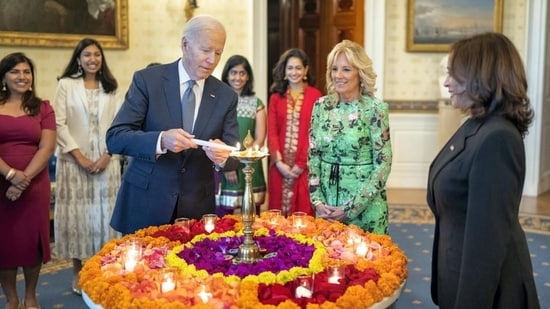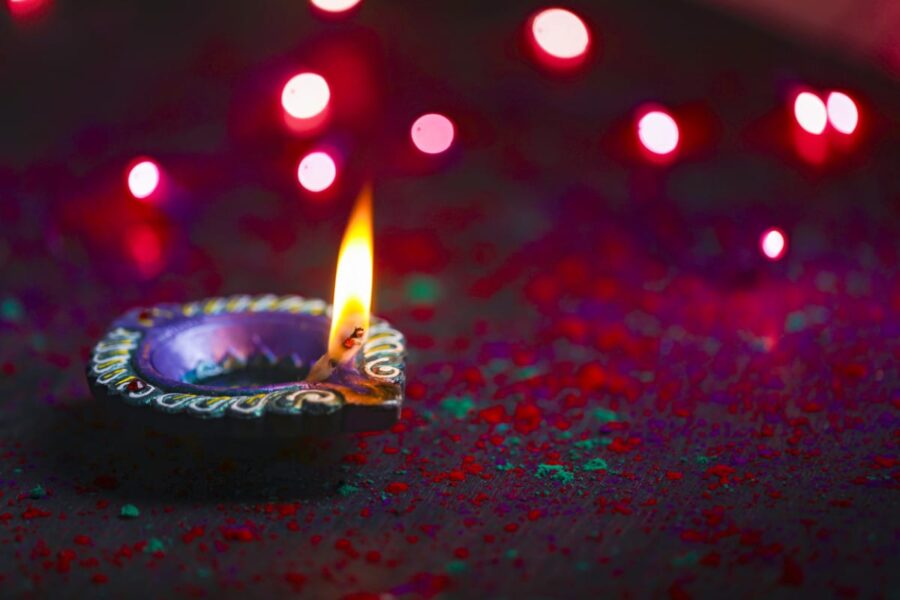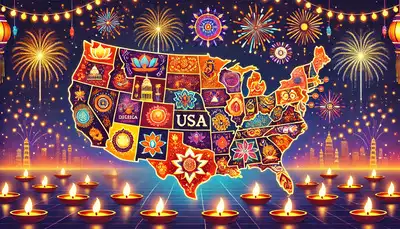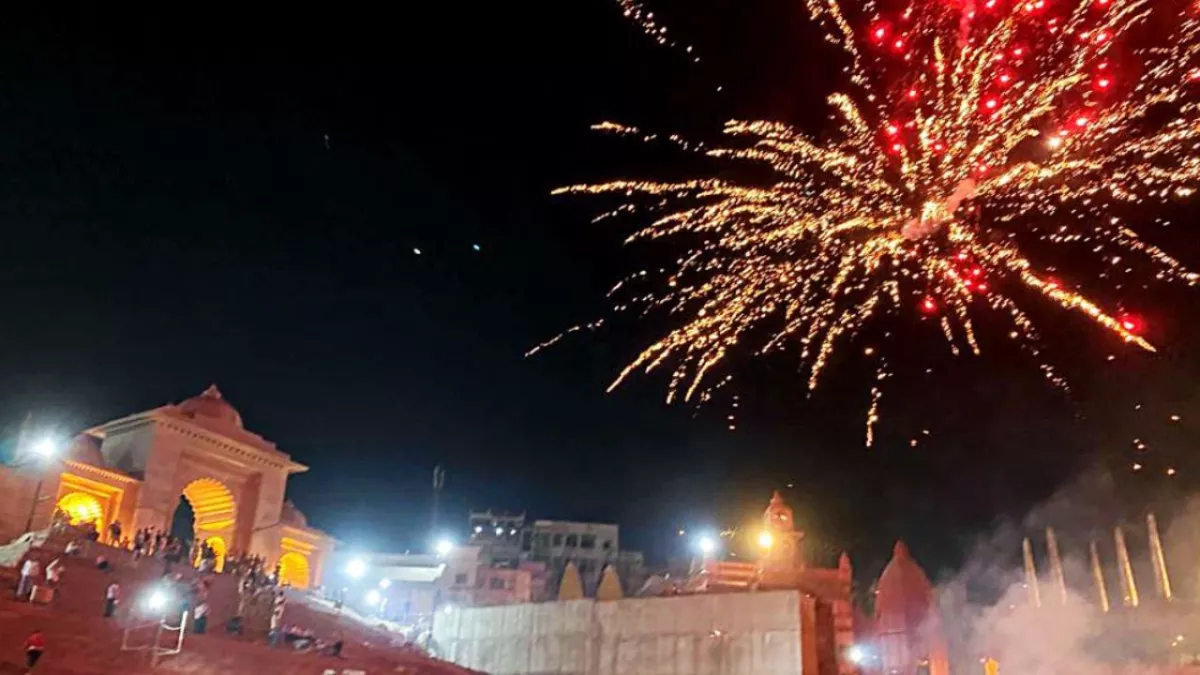Diwali, known as the Festival of Lights, is a cherished holiday celebrated by millions across the globe, symbolizing the triumph of light over darkness, knowledge over ignorance, and good over evil. In recent years, as South Asian communities have become a larger part of American society, Diwali has gained broader recognition across the United States, with various states and cities celebrating and acknowledging its cultural significance. In a groundbreaking move for 2024, Pennsylvania has declared Diwali a state holiday, setting an inspiring precedent. This decision reflects a shift toward inclusivity, where local governments recognize the importance of this festival to a large part of their communities and honor the diversity that strengthens American society.
Several U.S. states have officially declared Diwali as a holiday, recognizing its significance for the South Asian community. Here’s a list of states that have made this declaration:
- New Jersey: Some districts observe Diwali as a school holiday.
- New York: Diwali is recognized in several school districts, allowing students to take the day off.
- California: Specific districts, such as Fremont, celebrate Diwali, granting students a holiday.
- Texas: Certain school districts recognize Diwali as a holiday.
- Illinois: Various districts observe Diwali, giving students a day off.
- Virginia: Some districts have designated Diwali as a holiday.
- Maryland: Diwali is recognized in select school districts.
- Massachusetts: Diwali is acknowledged in some areas.
- Florida: Certain districts celebrate Diwali as a school holiday.
- Nevada: Recognizes Diwali in specific school districts.
- Washington: Diwali is celebrated in some districts.
- Hawaii: Acknowledges Diwali in various communities.
- Pennsylvania: Recently declared Diwali an official state holiday in October 2024

While these states recognize Diwali, the extent of the recognition can vary, with some areas observing it as a school holiday rather than a public holiday where businesses and government offices are required to close. For more detailed information on each state’s recognition, you can refer to sources like IndiaWest and local news outlets that cover legislative changes regarding cultural holidays
Pennsylvania’s decision to make Diwali a state holiday marks a major milestone for the South Asian community. As one of the first states to make this move, Pennsylvania’s action has generated excitement, not only among Indian Americans but across various communities who value cultural representation. By declaring Diwali a state holiday, Pennsylvania acknowledges the contributions of its South Asian residents and creates an opportunity for everyone to learn about and celebrate this important festival. Many schools and businesses are expected to observe the holiday, allowing families to gather for festivities without having to choose between celebrating and fulfilling academic or professional obligations. This gesture encourages inclusivity and cultural understanding, aligning with the values of a multicultural society where diverse traditions are respected and celebrated.
Pennsylvania’s decision has inspired other states to consider similar moves. New York, for instance, has long been a center for multicultural initiatives, and in 2023, New York City added Diwali as an official school holiday, a first for any major U.S. city. This was a victory for community leaders and advocates who had been working for years to achieve this recognition. With large South Asian communities in areas such as Queens, the Bronx, and Long Island, New York’s decision acknowledges the significance of Diwali for many of its residents. The impact of this recognition goes beyond the South Asian community, as it offers all students in New York City schools a chance to learn about and celebrate the festival together, promoting greater understanding and acceptance among different cultural backgrounds.
New Jersey, with one of the largest Indian-American populations in the country, has also taken significant steps toward recognizing Diwali. Several school districts in New Jersey have allowed students to take an excused absence on Diwali, particularly in cities with large South Asian communities like Edison, Jersey City, and Piscataway. Although the holiday is not yet mandated statewide, local leaders and advocates are pushing for further recognition. For many families, an official Diwali holiday would provide the time to fully engage in the traditions associated with the festival, such as prayers, decorating with lights, and sharing meals with family and friends. In towns across New Jersey, Diwali celebrations are already popular, featuring community events like Diwali Melas (fairs) that welcome everyone to enjoy food, dance, and cultural activities.
In Texas, known for its growing Indian-American population, especially in cities like Houston, Dallas, and Austin, Diwali is increasingly recognized within local school districts and communities. While Texas has yet to declare Diwali a statewide holiday, various districts in the state allow students the option of an excused absence to celebrate the festival. This flexibility allows families to participate in Diwali traditions without the pressure of balancing schoolwork, reflecting an awareness of the festival’s significance. Houston, for instance, hosts large public Diwali events that include music, dance, and fireworks, open to all who wish to celebrate or learn more about the festival. These events not only bring the South Asian community together but also attract residents from various cultural backgrounds, fostering unity and mutual respect.

Maryland has also made strides in acknowledging Diwali’s importance, particularly in areas like Montgomery County, where South Asian populations have a strong presence. Montgomery County Public Schools recognize Diwali as an official holiday, allowing students to celebrate without missing school. This recognition offers students and families the opportunity to fully participate in the festivities without the added stress of missing classes or assignments. Community leaders have praised Montgomery County’s efforts, seeing them as a model for other school districts nationwide. By recognizing Diwali, Montgomery County schools send a powerful message of inclusivity and respect for cultural diversity, aligning with values that are increasingly central to American education.
Across the U.S., the trend of recognizing Diwali is gaining momentum in other states as well. Illinois and California, home to sizable Indian-American communities, have seen local advocacy groups and cultural organizations pushing for greater acknowledgment of the holiday. Some schools in these states offer students excused absences to celebrate, although the holiday is not yet officially recognized at the state level. In California, community leaders and organizations host numerous Diwali celebrations, particularly in the Bay Area and Los Angeles, where vibrant public events introduce people of all backgrounds to the traditions of the festival. By celebrating Diwali, these communities create spaces for cultural exchange and unity, emphasizing the importance of diversity in enriching American life.
The growing recognition of Diwali also extends to the corporate world, where companies are increasingly acknowledging the holiday to foster inclusivity. Many workplaces with diverse teams allow flexible leave options or host Diwali-themed events to celebrate the festival’s spirit. Some of the largest corporations in the U.S., such as Google, Microsoft, and Meta, now recognize Diwali with celebrations, diya-lighting ceremonies, and even themed decorations. Employee Resource Groups (ERGs) focused on South Asian culture play a significant role in advocating for Diwali recognition in corporate spaces. These groups help organize events and encourage inclusive policies that allow employees to bring their whole selves to work, making them feel valued and connected to their heritage.

While Pennsylvania’s decision to recognize Diwali as a state holiday is groundbreaking, it also underscores the broader movement across the country. South Asian advocacy groups, like the Hindu American Foundation, continue to work with local governments and educational institutions to push for more widespread recognition of Diwali. For the South Asian community in the U.S., seeing Diwali embraced in public life is more than just a holiday—it represents the validation of their cultural heritage and traditions. The acknowledgment of Diwali in various states and institutions is a positive sign for the future, showcasing a growing appreciation for the contributions of South Asians to American society.
Read More :
As Diwali gains recognition in more states, it reflects a national trend toward a more inclusive and diverse America. The spread of Diwali celebrations across schools, workplaces, and communities is a testament to the United States’ commitment to honoring its multicultural identity. Diwali stands as a symbol of unity and joy, bringing people of all backgrounds together to celebrate the values of light, hope, and resilience. Through these efforts, Diwali is becoming a cherished part of America’s cultural fabric, a holiday that not only celebrates South Asian heritage but also strengthens the shared values of unity, family, and community.
In addition to schools and communities, Diwali’s cultural footprint has expanded into mainstream entertainment and media in the U.S. Major streaming platforms, including Netflix, Amazon Prime, and Disney+, have begun featuring Diwali-themed movies, series, and documentaries, providing an opportunity for a wider audience to understand the festival’s significance. South Asian representation in media has grown, with shows and films portraying Diwali celebrations as integral parts of characters’ lives, making these stories more relatable and accessible to all. Some children’s shows have incorporated Diwali episodes, educating young viewers on the festival’s history and symbolism in a fun, approachable way. This increasing representation helps to normalize Diwali in American households, especially for younger generations who may encounter it for the first time through media.

